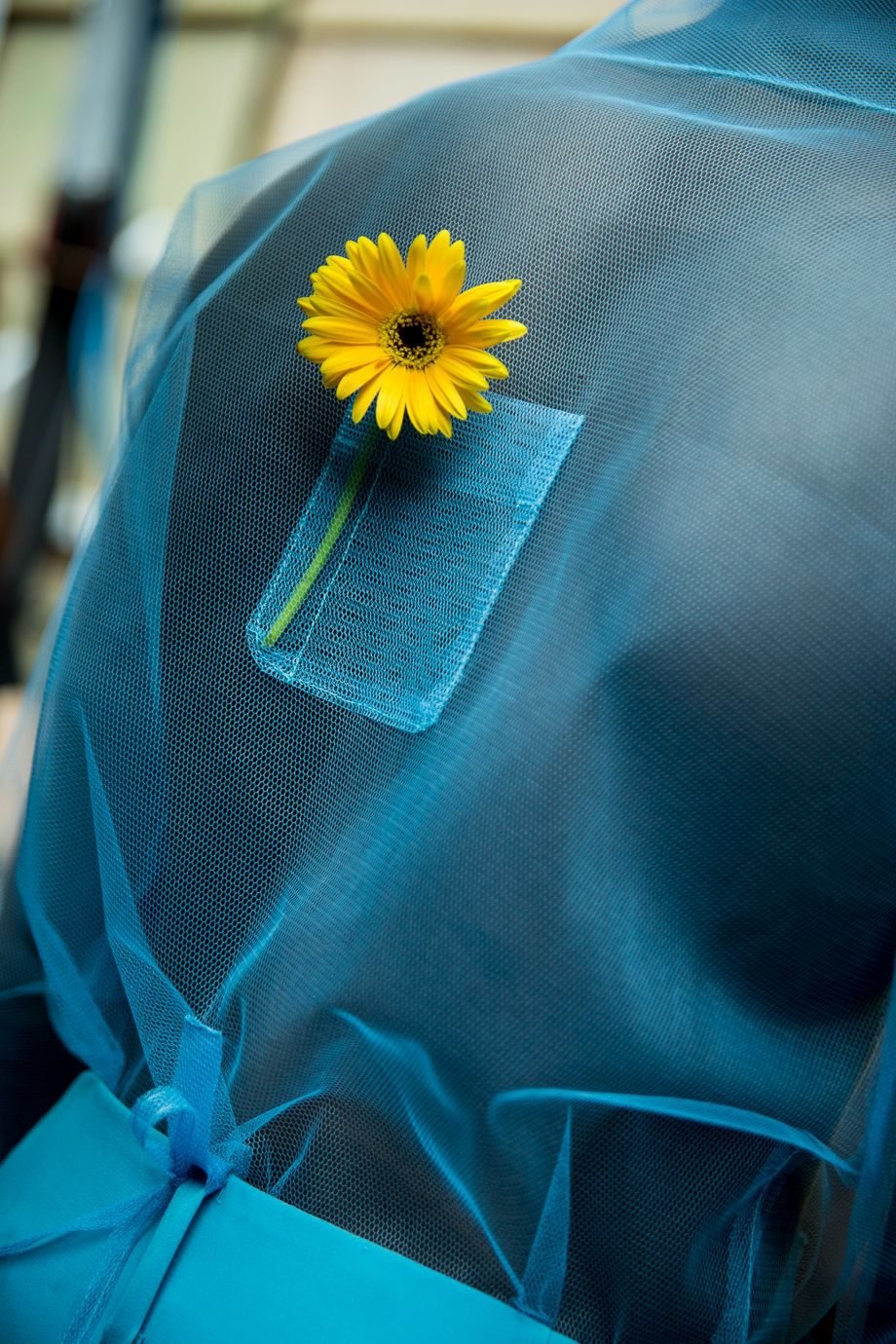How would you have done without the support of the BFC?
Without it, I wouldn’t even be in the position that I am now, of studying for a master’s. Having this support has meant that something that seemed quite unobtainable for me, has been made possible. This opportunity has created space to further my practice and learn so much more whilst being surrounded by like-minded tutors and peers. The support from the BFC also allowed me to quit my bar job of 5 years. Working part-time alongside my BA at CSM was a struggle at times, having to balance the time which creative projects require. Leaving my part-time job has enabled me to dedicate myself fully to my studies and practice, allowing me to take on a few creative freelance jobs too. I knew that studying a master’s at the RCA would be crucial for my creative development and to further understand myself as a multidisciplinary artist and fashion practitioner, I wouldn’t be doing that without the BFC support.
“Money is something a lot of students don’t have and especially with art-based masters and degrees, it is necessary in order to be able to supply yourself with materials, equipment and in turn execute the creative goals you have.” – Shanti Bell
Do you think it is important that there is British support as the BFC in UK universities after Brexit?
Completely! I think with things such as finances, everything is becoming geared to being harder for students. Money is something a lot of students don’t have and especially with art-based masters and degrees, it is necessary in order to be able to supply yourself with materials, equipment and in turn execute the creative goals you have. Creative talent is worldwide and it’s great the BFC’s support recognises this and allows many students to be able to prosper.
How is your practice evolving?
Over the past year, I have been learning more about myself as an artist, evolving in the art practices of sculpture, movement and motion, film, and set design. These new extensions working alongside my fashion and furniture practice have shifted my work further into a space of mixed media and collaboration. Being experimental and free with my approaches over the first year of my masters has led me to a very exciting space.
Abstraction and cross-discipline are very present in your work, is it still the case?
Yes, and possibly more so. I find that my approach when working on a project is fundamentally allowing the concept to determine and drive the medium of the outcome. The outcome may be direct and obvious, or abstract, but I find this allows my work to speak authentically. When working cross-discipline I also like to collaborate with creatives of different practices I am unfamiliar with. I find collaboration such a tool for innovation as every person’s approach is so unique and the combining of these differences creates a refreshingly interesting space.
Are you still partnering with your brother?
For my BA collection, I began to look into the pressures and burdens which young men feel from society. However, it wasn’t until I started to question why I was interested in these topics that I discovered the direct link with what my brother has been going through, hence my personal attachment with that subject matter. I then wanted to use my work to speak not only of him but also for other young men’s unspoken words and burdens and convey it through menswear. Currently, my research is rooted in exploring father and son relationships which stems from looking at that relationship dynamic within my own family. As a female designer creating menswear I have found that my instinctual reference of inspiration of men and masculinity begins with my brother as it’s a relationship I have direct contact and connection with.
What are you expecting after graduating from the MA at RCA?
Something I try to do is not to have expectations for how I think things will go but to be open to possibilities and experiences which may come. Graduating from the MA at the RCA will be me finishing with education entirely, which will be completely new, but exciting! I think it will be a great time for me to venture creatively and continue to create expressions of my work. I have a few exhibitions and projects in mind and so I intend to get started with those and see where things take me!













